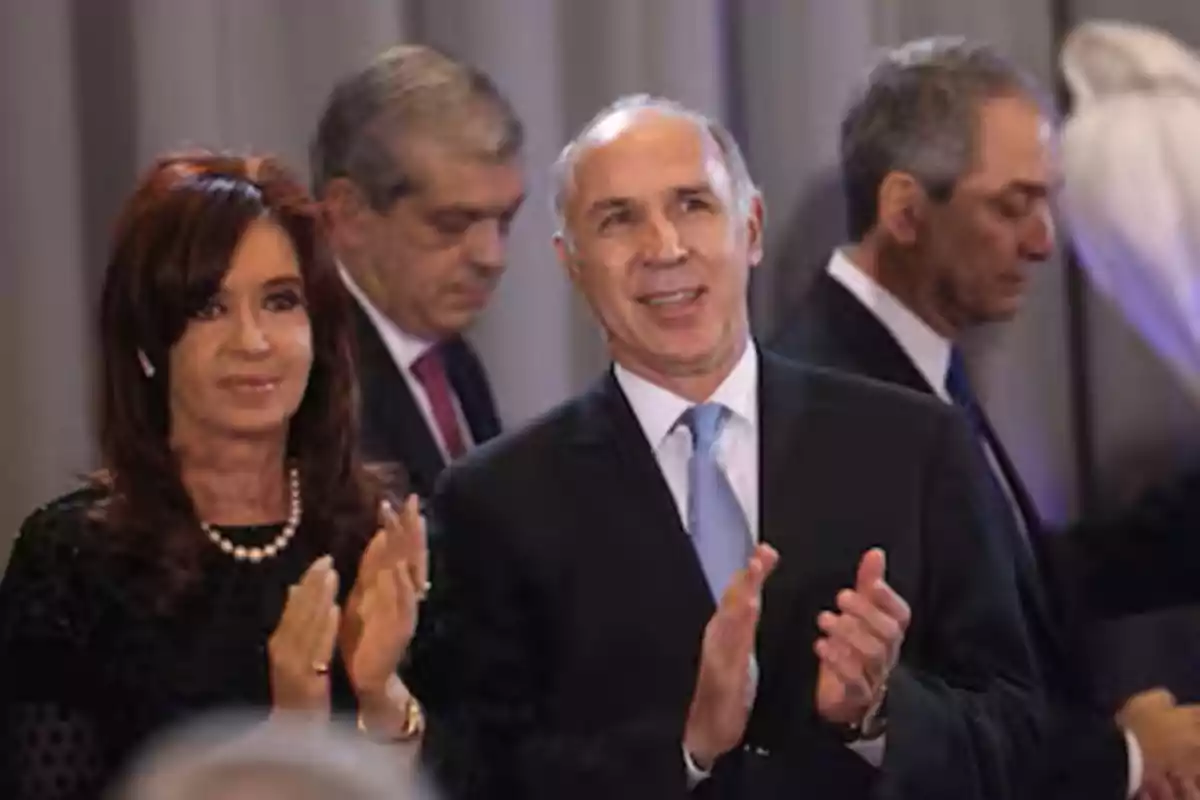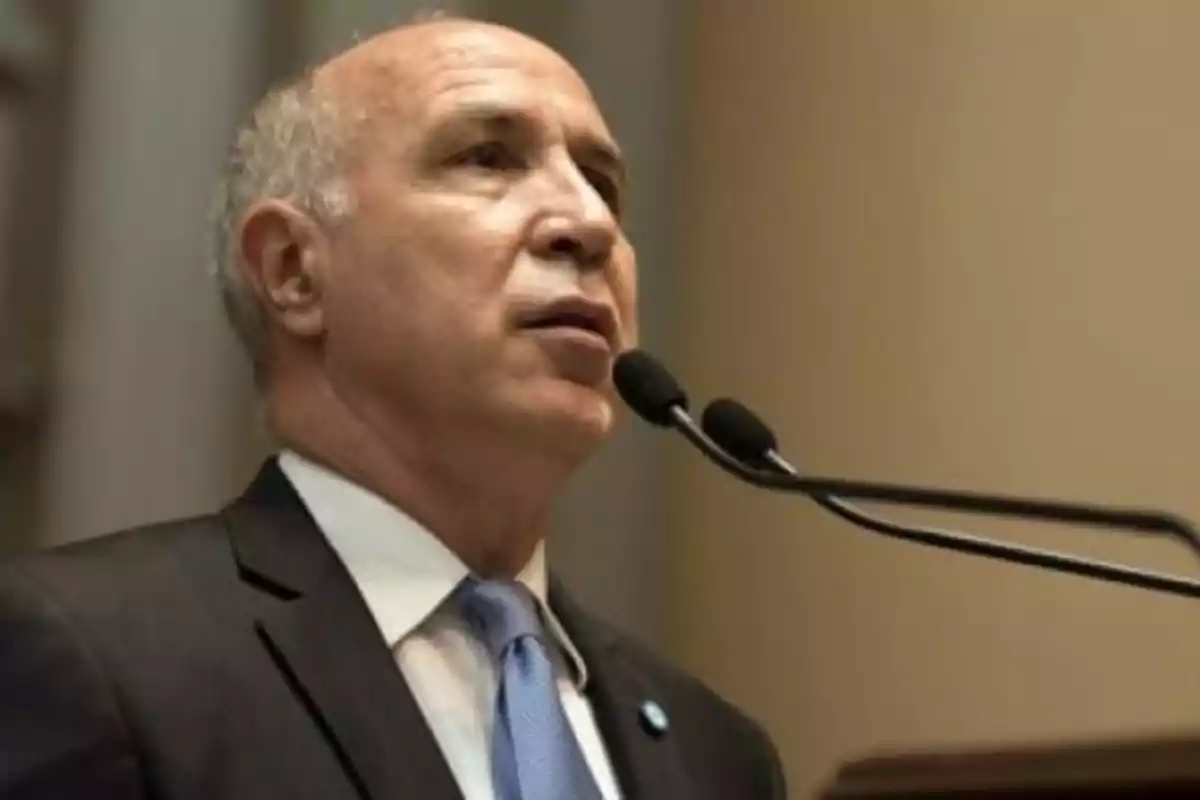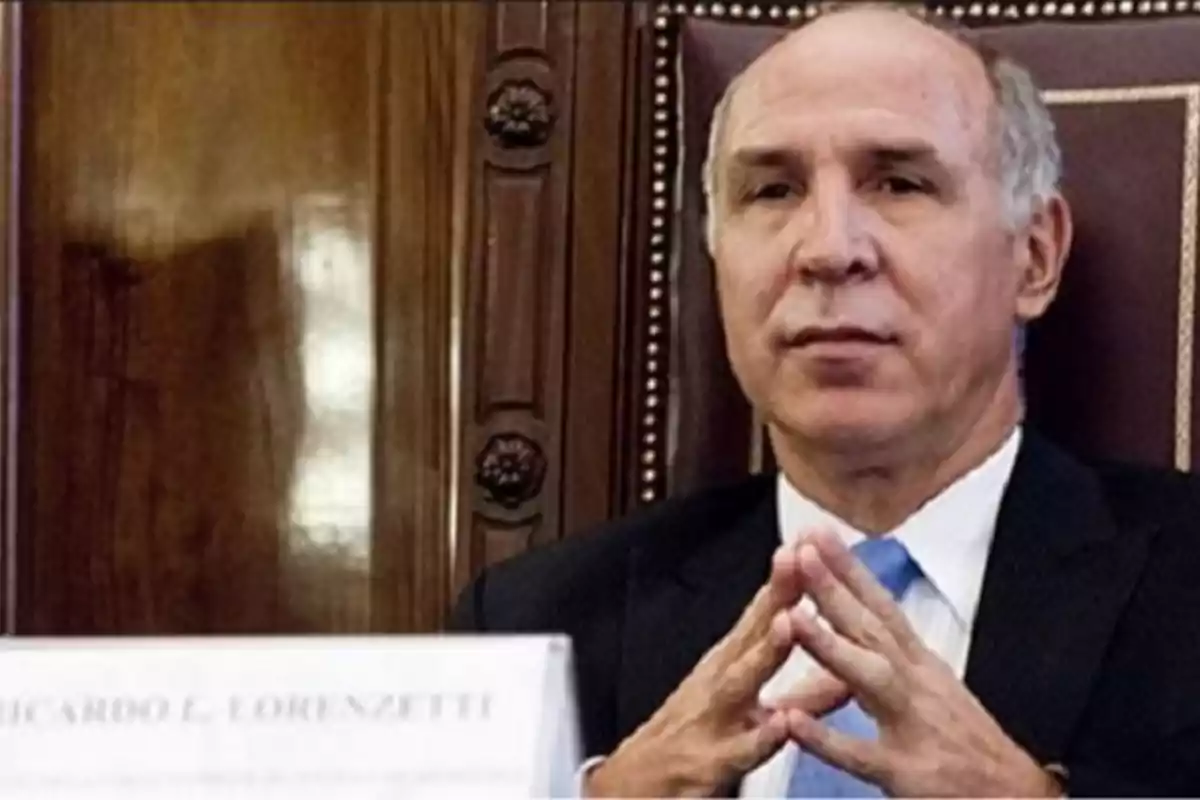
Cristina imprisoned: Judge Lorenzetti, appointed by Néstor, was key to her conviction
From Néstor's chosen one to Cristina Kirchner's executioner: the judge who sealed the historic conviction of the former president
The same judge whom Néstor Kirchner promoted to join the Supreme Court ended up being a central figure in the judicial downfall of Kirchnerism. Ricardo Lorenzetti, appointed as a justice of the highest court in 2004 and president of the body from 2007 to 2015, was one of the three judges who confirmed the sentence of six years in prison and permanent disqualification from holding public office against Cristina Fernández de Kirchner in the Vialidad case.
This is no minor detail: Lorenzetti was unanimously approved by all senators at that time, during the consolidation of the K model. His career, with no prior judicial background, was directly promoted by then-president Néstor Kirchner. What seemed like a move for institutional control turned, two decades later, into one of the most devastating setbacks for the Kirchnerist legacy.

Who is Ricardo Lorenzetti?
Ricardo Luis Lorenzetti was born in Rafaela, Santa Fe province, and is about to turn 63 years old. He graduated as a lawyer at the age of 22 from the National University of the Littoral, where he also obtained his Doctorate in Legal and Social Sciences in 1983. His career was forged in the academic and private sectors: he was a university professor of Civil Law and directed postgraduate programs in Damages Law and Environmental Law at the University of Buenos Aires (UBA), where he still teaches.
Before joining the Judiciary, Lorenzetti had never held a public office: he was dedicated to his law practice and teaching. His entry into the judicial system came in August 2004, when he was briefly appointed as the Senate's representative on the Jury of Prosecution of the Public Prosecutor's Office. Shortly after, following Adolfo Vázquez's resignation, Néstor Kirchner nominated him as a Supreme Court justice. In December of that same year, he took office with the support of all political blocs.
In 2007, he replaced Enrique Petracchi as president of the highest court, a role he held for eight years. During his tenure, he promoted a more open judicial communication policy, creating institutions such as the Judicial Information Center (CIJ) and the National Conference of Judges, and pushed for judges to pay Income Tax.
He had an ambivalent relationship with Kirchnerism. In 2013, he voted against the unconstitutional reform of the Judicial Council promoted by Cristina Kirchner, but that same year he upheld the Media Law, a key tool for Kirchnerist media discipline. He was also criticized by Elisa Carrió, who filed for his impeachment in connection with the Fútbol Para Todos cases and alleged irregularities in the Judiciary's IT system.
Today, that judge "of the Kirchnerist model" ends up being one of the signatures that buries Cristina Kirchner's political aspirations.

The ruling that marked a turning point
The Supreme Court of Justice of the Nation unanimously confirmed the criminal conviction against Cristina Fernández de Kirchner for corruption in public works. The sentence of six years in prison and permanent disqualification from holding public office is now final and leaves the former president out of any electoral competition.
The decision was signed in an extraordinary meeting by justices Horacio Rosatti, Carlos Rosenkrantz, and Ricardo Lorenzetti, who endorsed the ruling issued by Federal Oral Court No. 2 in December 2022.
The case, known as "Vialidad," investigated the steering of 51 road public works contracts in Santa Cruz, all awarded to Lázaro Báez, a businessman and close friend of the Kirchner couple. The total amount of the contracts exceeds 46,000 million pesos, a scandalous figure even by Kirchnerist standards of fiscal mismanagement.
Cristina Kirchner was found guilty of fraudulent administration to the detriment of the State for allowing, from the Executive Branch, an irregular scheme of contracting, overbilling, and payments for unfinished or nonexistent works. Although the charge of illicit association was dismissed, the ruling places her as a central figure in a structural corruption system that used the State as an instrument of plunder.
The ruling points to her direct responsibility in favoring Báez, convicted in parallel cases for money laundering. The structure remained operational during her two terms and was part of the framework that sustained Kirchnerism for years.
Cristina Kirchner thus becomes the first former president with a final conviction for corruption in democracy. Although she can appeal to international bodies such as the Inter-American Court of Human Rights, her political future is over. The Supreme Court's confirmation of the ruling not only represents an act of justice but also a signal that political power is not above the law, no matter how many years it has governed or how much power it has concentrated.
More posts: